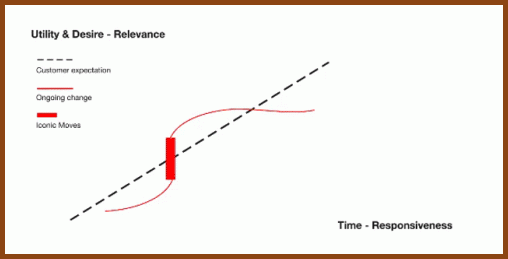Why Not?
On Paths Closed, Opened, and Straddled
Living is nothing more or less than doing one thing instead of another.
— José Ortega y Gasset, The Mission of the University (1944)
This web of time—the strands of which approach one another, bifurcate, intersect or ignore each other through the centuries—embraces every possibility. We do not exist in most of them. In some you exist and not I, while in others I do, and you do not.
— Jorge Luis Borges, The Garden of Forking Paths (1948)
As you can probably tell from the long preamble,
I’m always reluctant to speak about myself. If given the option between a one-minute introduction about ‘me’ and a one-hour presentation on ‘X,’ more often than not, I will bite your hand off for the latter. Even typing ‘I’ makes me cringe a bit. But that’s not your problem.
I’m always reluctant to speak about myself, not because I don’t want to tell the truth, but because I don’t want to lie, however whitely. The truth about oneself—one’s true feelings in the present, intentions, one’s true feelings about the future—is often too deep a subject for the shallows of casual conversation, idle banter, or the often brutal back-and-forth with friends.
Unfortunately, a lot of the time, life’s too short for longform.
So, we install heuristics: interpersonal shorthands of things we say or don’t say, do or don’t do. Each of us has a unique bunch of these heuristics, which help us determine the level of our intimacy or honesty. There are pathways of conversation open to Friend X, which are very much closed to Neighbour Y.
Moreover, these heuristics are not evergreen. With each passing day, pathways that were once closed begin to open; pathways that were once open begin to close. Friends become old neighbours; neighbours, new friends.
Right now, as I sit at my desk, I am cognitively mapping the paths that are opening and closing before me, as well as the paths that ‘I’ want to open, the paths that ‘I’ need to close.
It’s not something I’m used to doing.
When hit with a What do you want to do with your life? or any of the other Big questions, I’ve often found myself spiralling for a split-second, before regaining my composure and—with formulae flashing across my eyes, like that Zach Galifianakis meme—reaching for the nearest, easiest answer to hand.
Anything to cul-de-sac that avenue of conversation.
In my life, however, I have rarely had to answer such questions. The Big questions have largely passed me by. As lawyers, engineers, accountants, et cetera, my circle of friends are all pretty set on their paths. Thus, questions about the future rarely arise.
That is, until there’s some form of drinking, partying, or general debauchery to be done. Which brings us to the titular question.
Why not?
The toughest questions which I am most commonly forced to contend with (or cul-de-sac) are not any of the Big ones, but variations on the theme of this small one.
“You can’t hang out and watch [insert sporting event here] today? Why not?”
“You can’t come out and do [insert banned substance here] tonight? Why not?”
In theory, the answer to such questions if often quite straightforward: generally some combination of “I haven’t hit my book quota this week,” or “I need to stay home so I can finish this piece by tonight,” or This piece is taking longer than I thought, I can’t afford to be hungover tomorrow.” In practice, however, straightforwardness is often trickier than it looks.
From what I can gather after a few minutes of page-staring, the why behind my reluctance to answer straightforwardly is twofold. Firstly, aside from loving my friends, I respect them. I admire their ability to live in the moment; to embody the philosophy of mañana, as the Spanish say. I refuse to be the one to cast the first stone of existential angst, or sow any seeds of self-doubt, or dampen the mood or spirit of the moment in any way.
Secondly, for reasons more selfish than selfless, I really enjoy being with them. Our paths are divergent, and diverging, but I’m in no hurry to accelerate the process. To this day, whenever I sacrifice some short-term escapade in the name of some long-term, loosely-defined purpose, I still find myself sitting at my desk, staring down the barrel of existential FOMO.
Why not?
It’s at this point that the question turns back on me. Why don’t I slam the book, slam the laptop, put on a shirt and jump in the car? In the past, I’ve enjoyed it. In the present, I’m drawn to it. Is the abstract possibility of being a writer more important than the concrete reality of being a friend? After all, I have very little to show for it: progress is slow, money is nonexistent. Am I simply doing the equivalent of scratching lottery tickets at home?
On my deathbed, am I really going to remember the extra day at the desk?
That’s the interesting thing about Why not?
It’s a Janus question (or auto-antonym or contronym): a word or phrase that means one thing and its opposite. It can function as the follow-up question to a declined invitation, “You can’t go out? Why not?” or the fired-up answer to the invitation itself, “Fuck it. Why not!”
When I was an 18-year-old, explaining that I was staying home to read Montaigne (or practice writing like him) was difficult. Now that I’m a 26-year-old, however, answering straightforwardly—living straightforwardly—is easier, though still not easy. I still dodge and deflect every now and again, but I am beginning to get a handle on my Why nots.
Who knows,
perhaps I’ll soon even begin to get a handle on my Whys.



